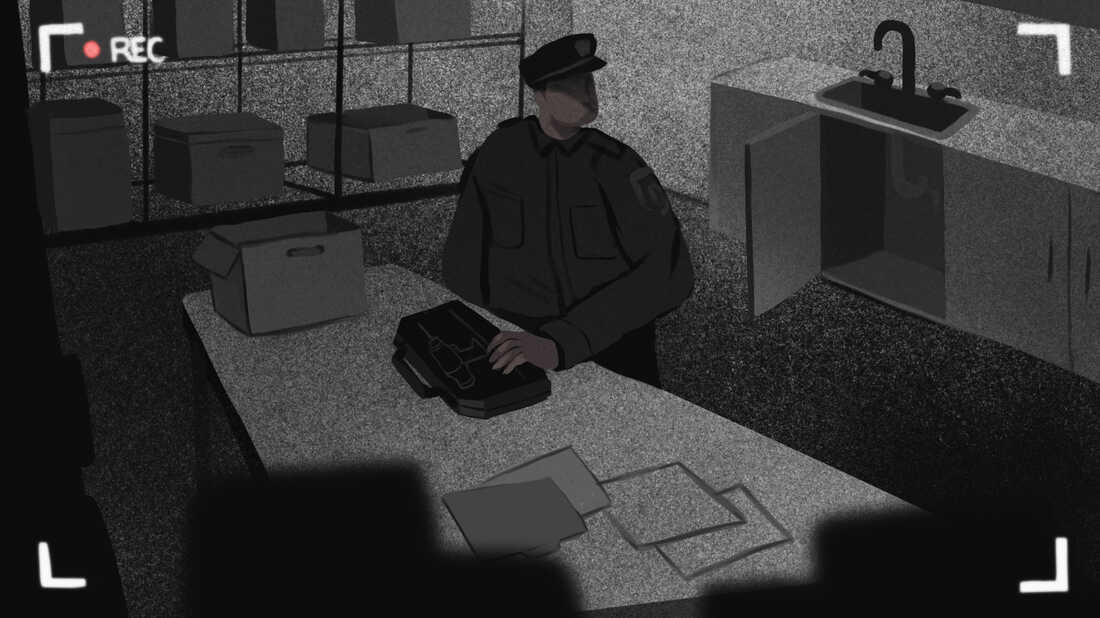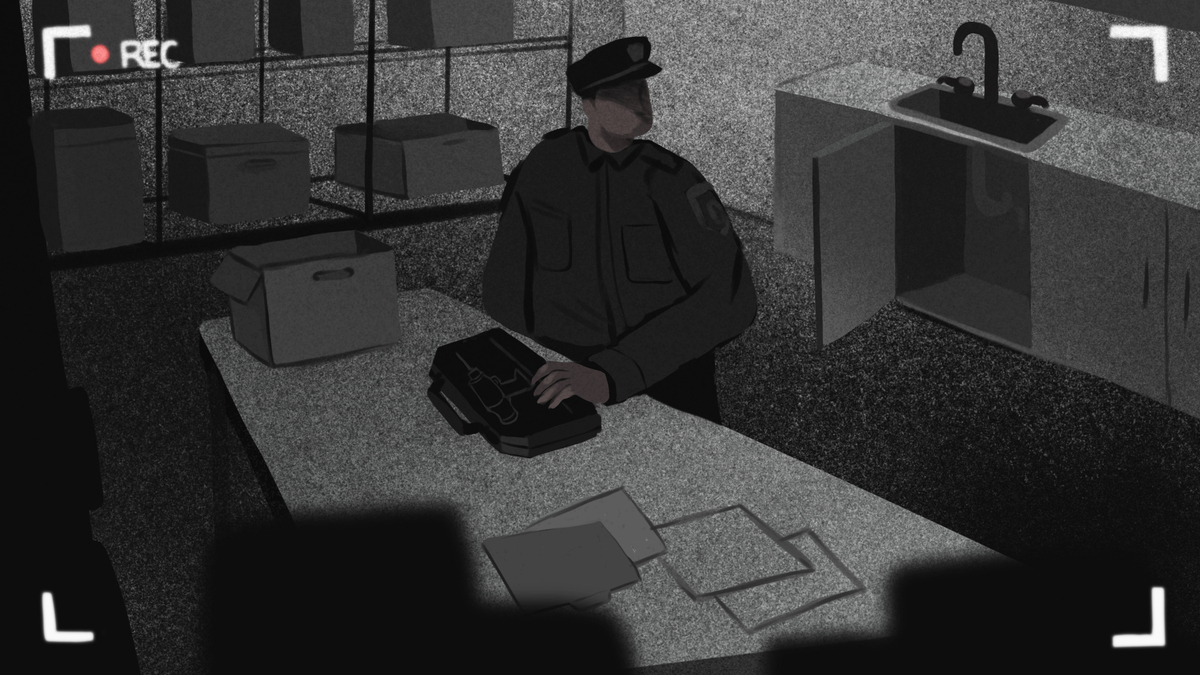
A man is seen through a surveillance camera, moving a toolkit containing a drill. Nicole Xu for NPR hide caption

A man is seen through a surveillance camera, moving a toolkit containing a drill.
Nicole Xu for NPRAntioch police officials suspected one of their veteran detectives of leaking operational details as far back as 2010. But they didn't fire Santiago Castillo for another seven years. During that time, he investigated hundreds of cases including several homicides, and his testimony helped put dozens of people behind bars.
In the sixth and final episode of On Our Watchfrom NPR and KQED we ask: in a secret system, what are the incentives for departments to investigate officers suspected of dishonesty or for District Attorneys to undermine their witnesses?
Listen to On Our Watch on Spotify, Apple Podcasts and NPR One.
Learn more about On Our Watch at KQED.org. This podcast is produced as part of the California Reporting Project, a coalition of news organizations in California.

 Live Radio
Live Radio